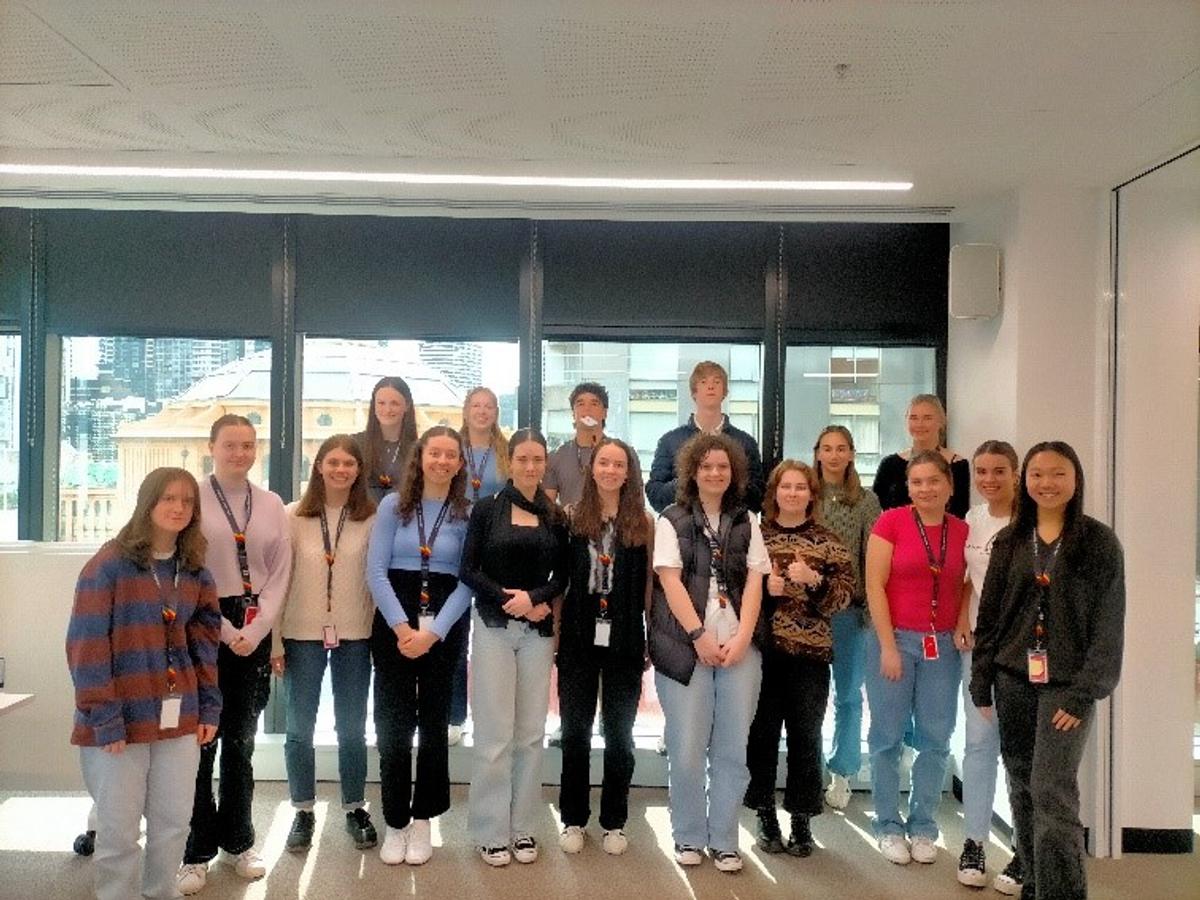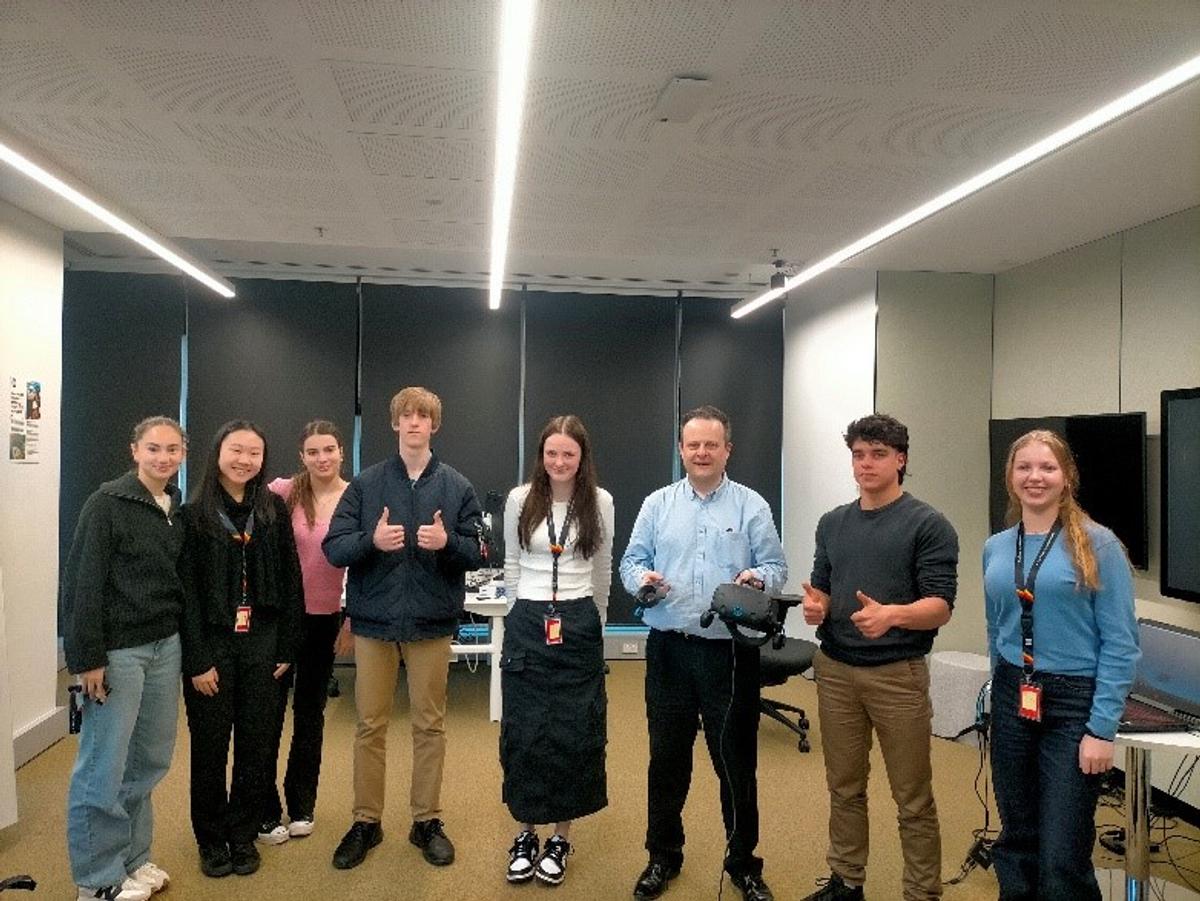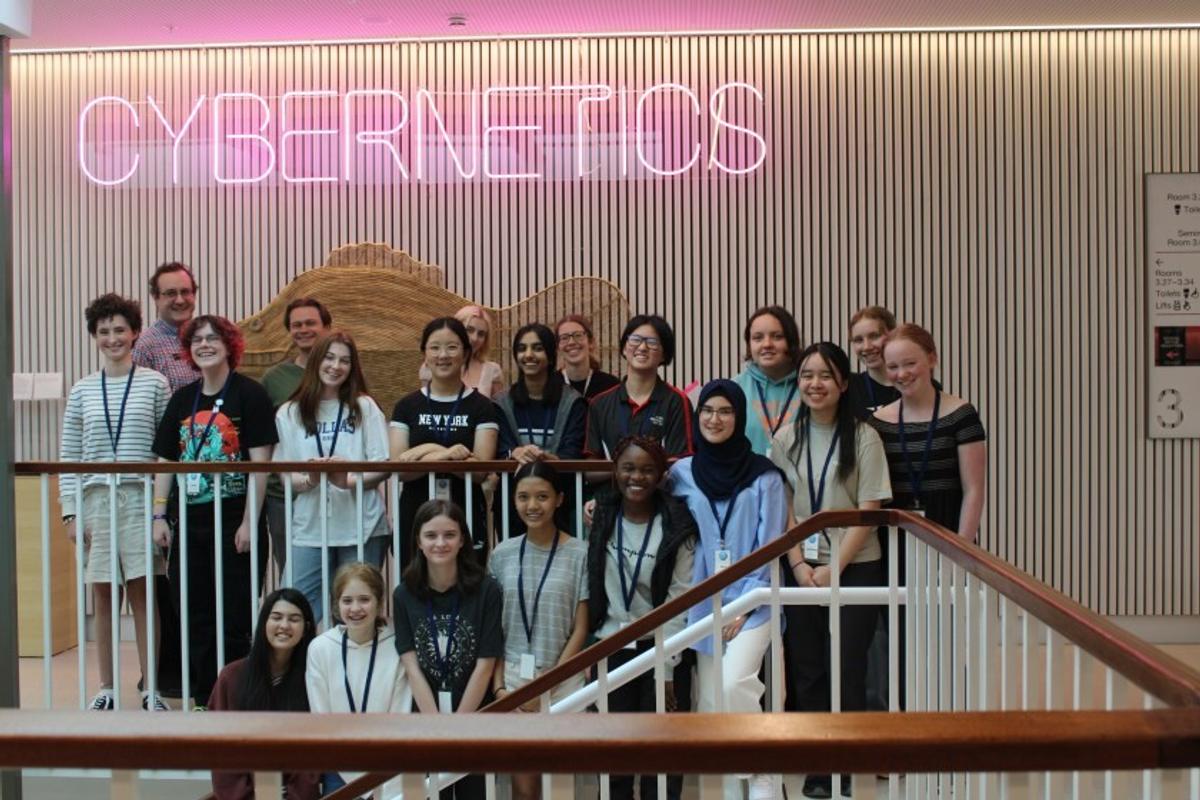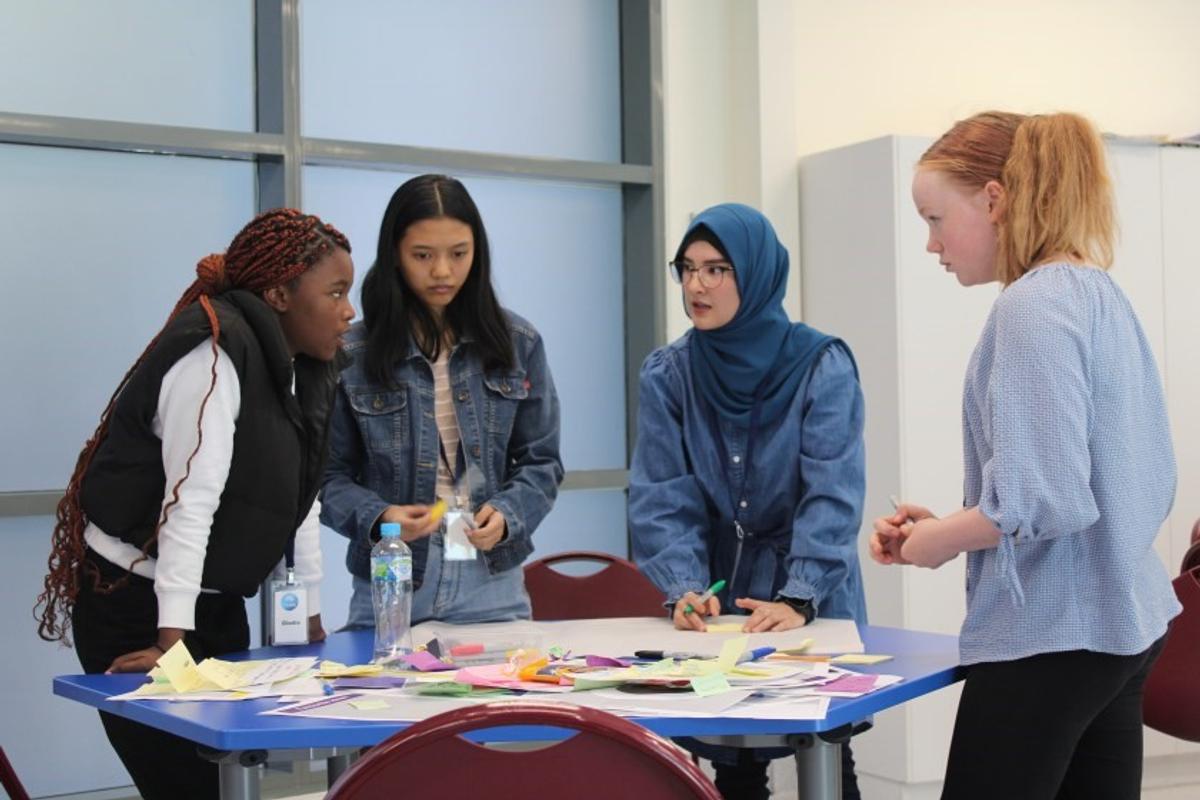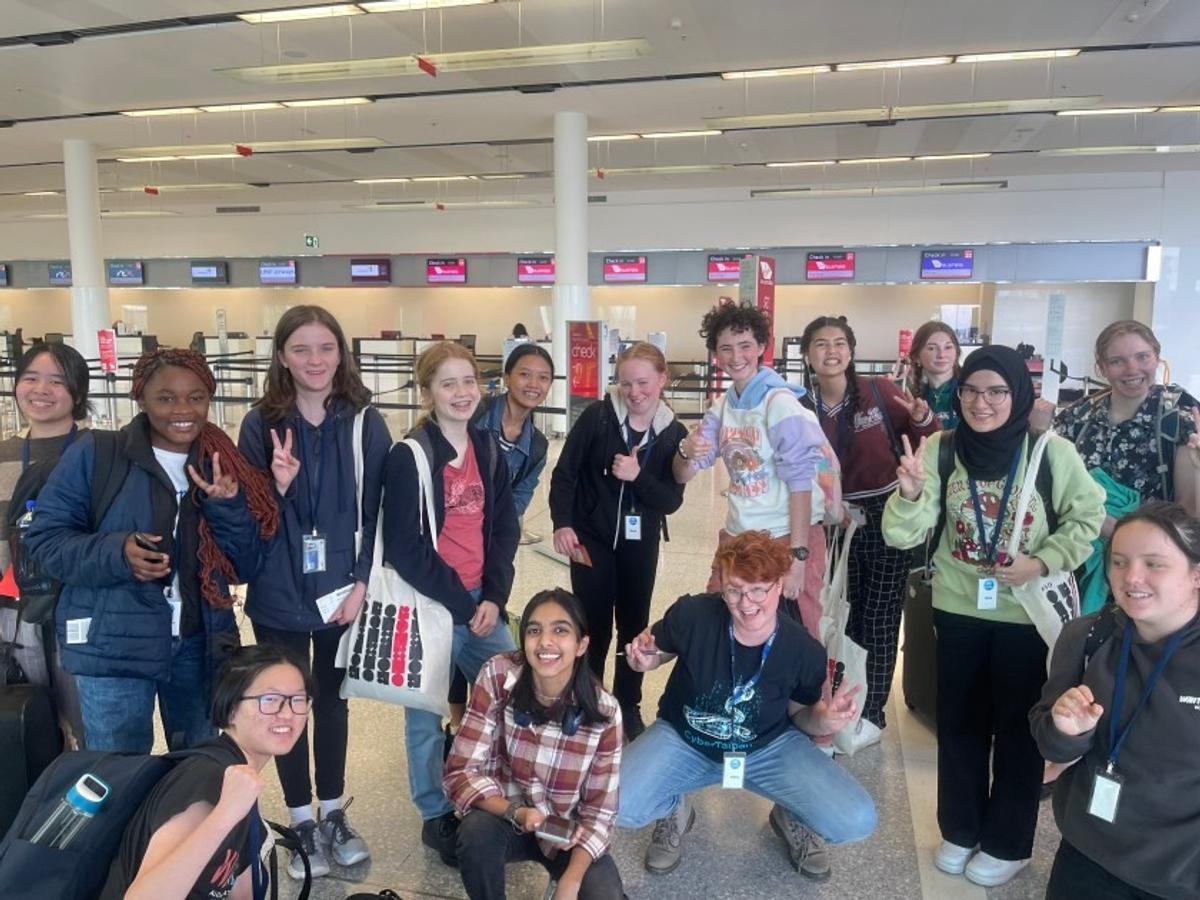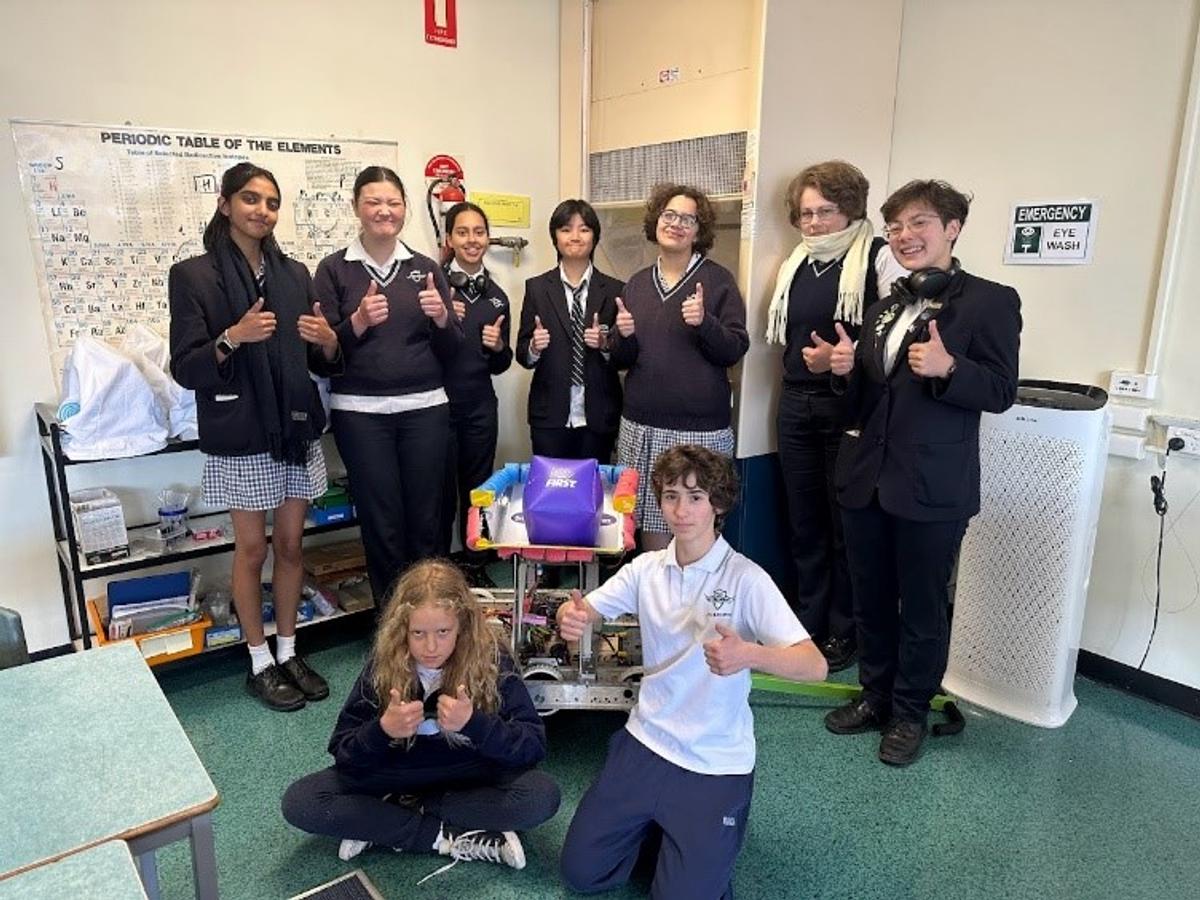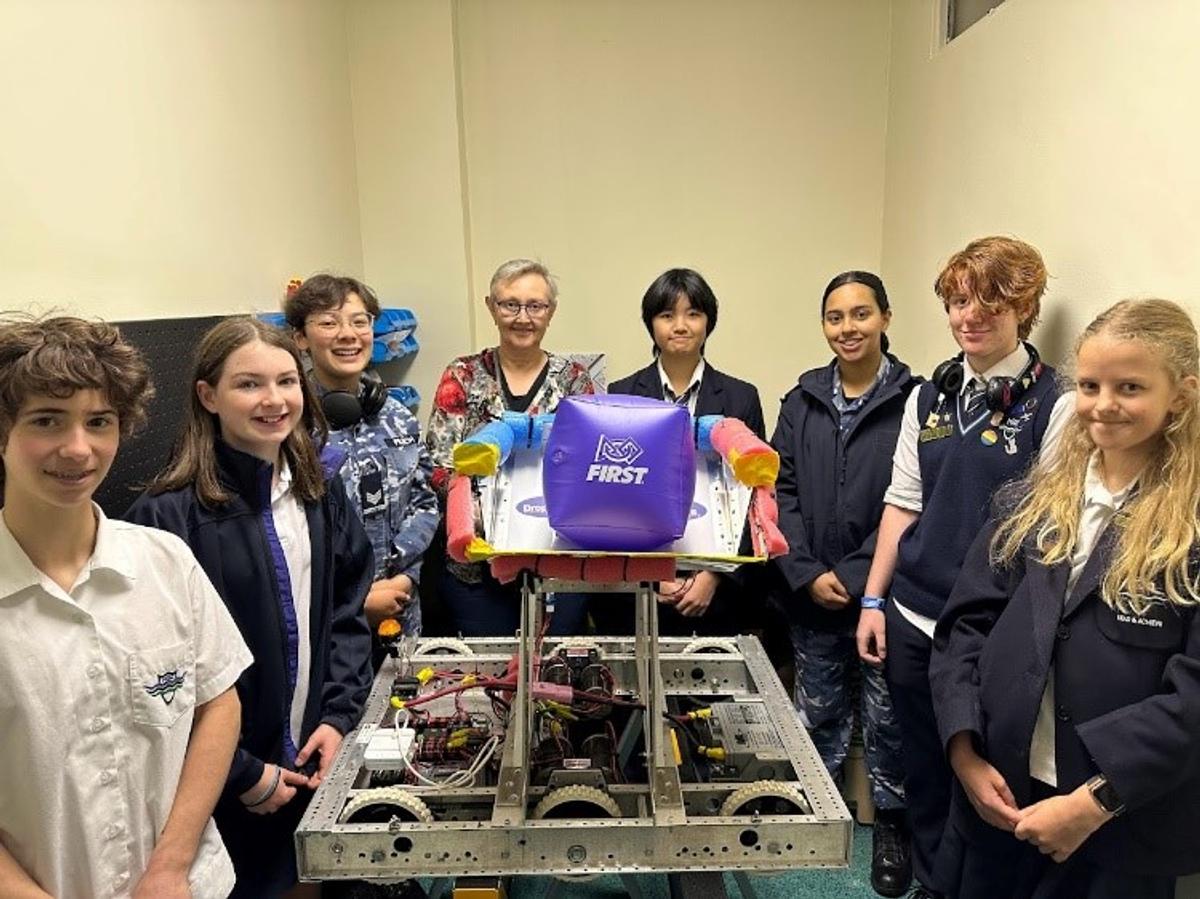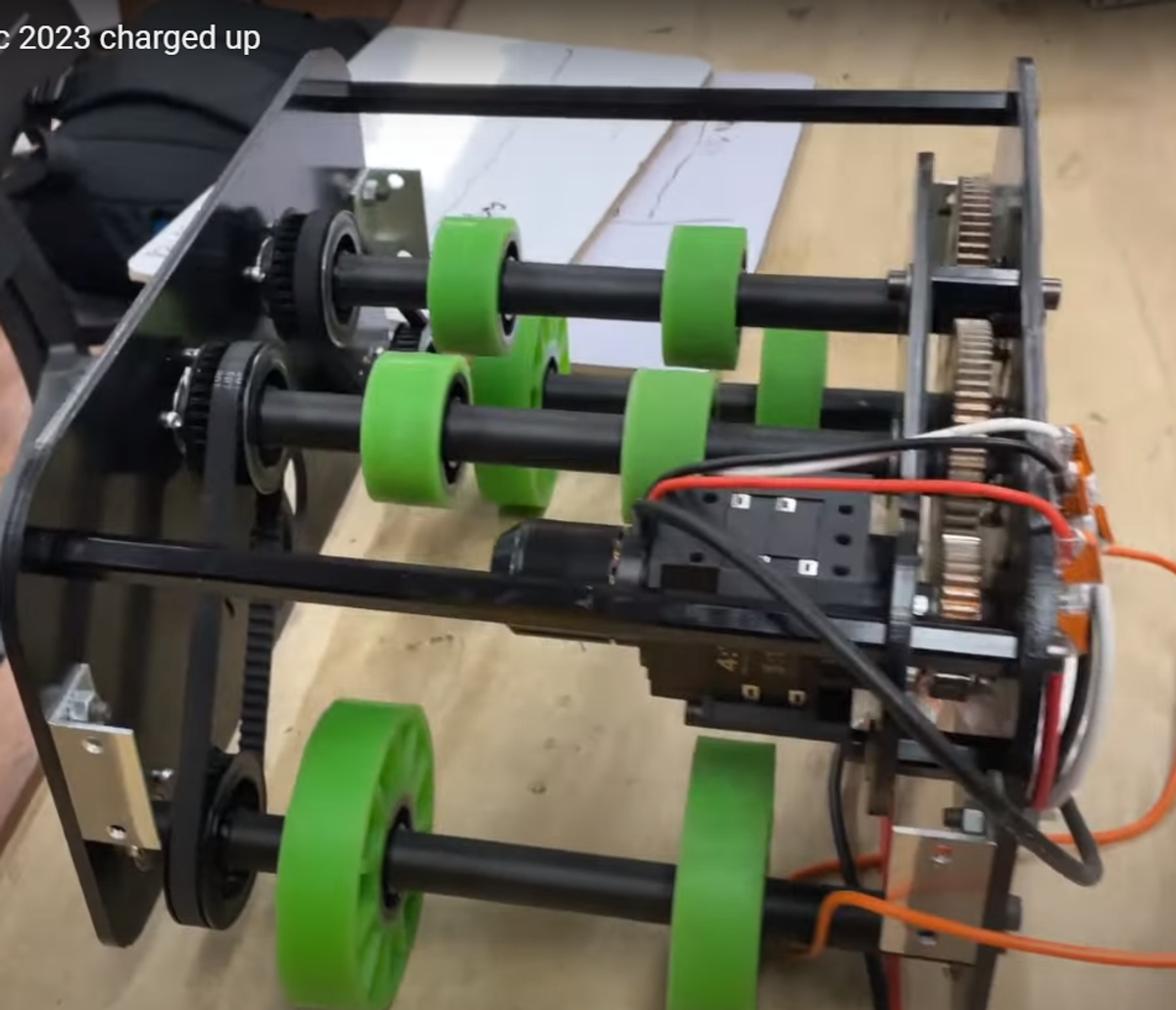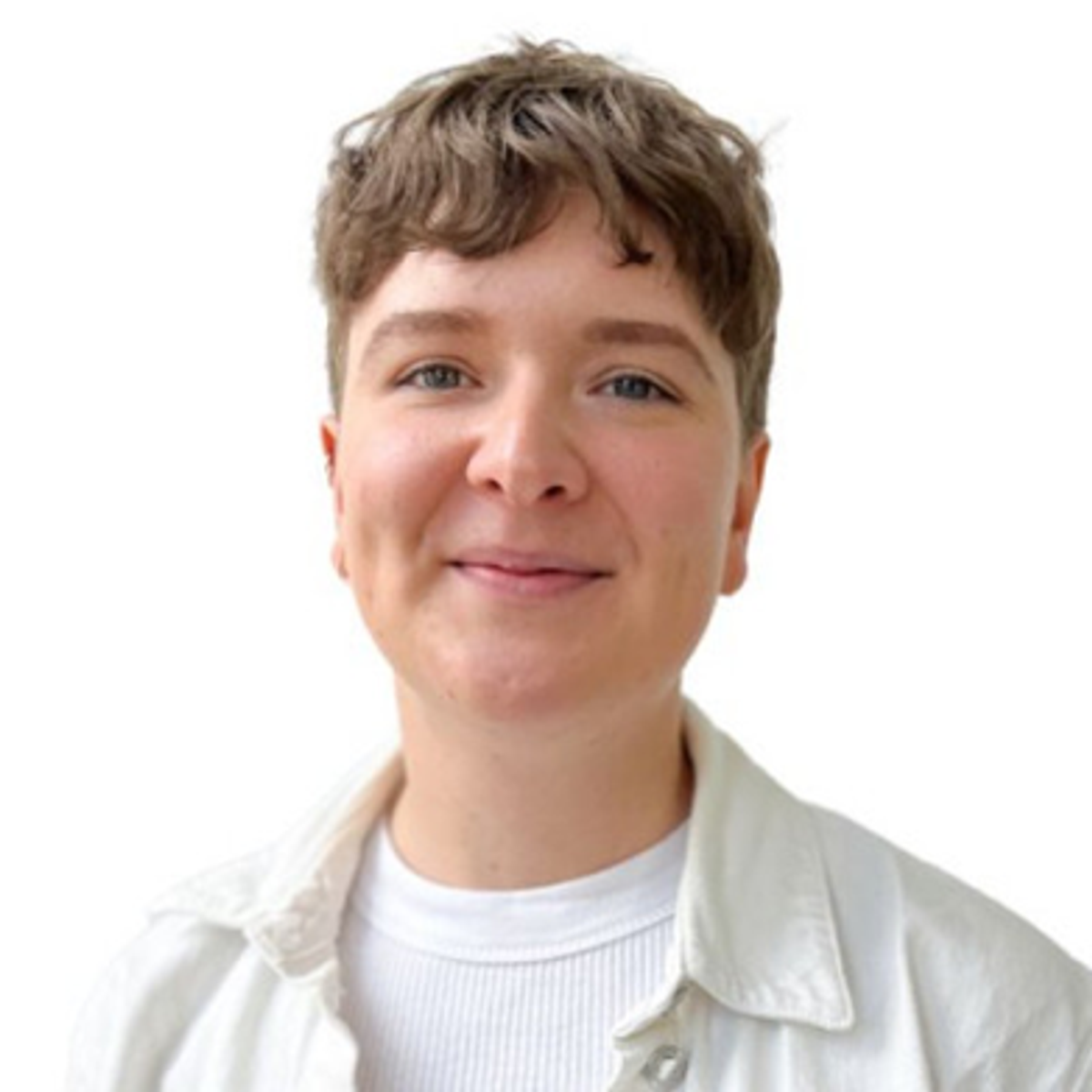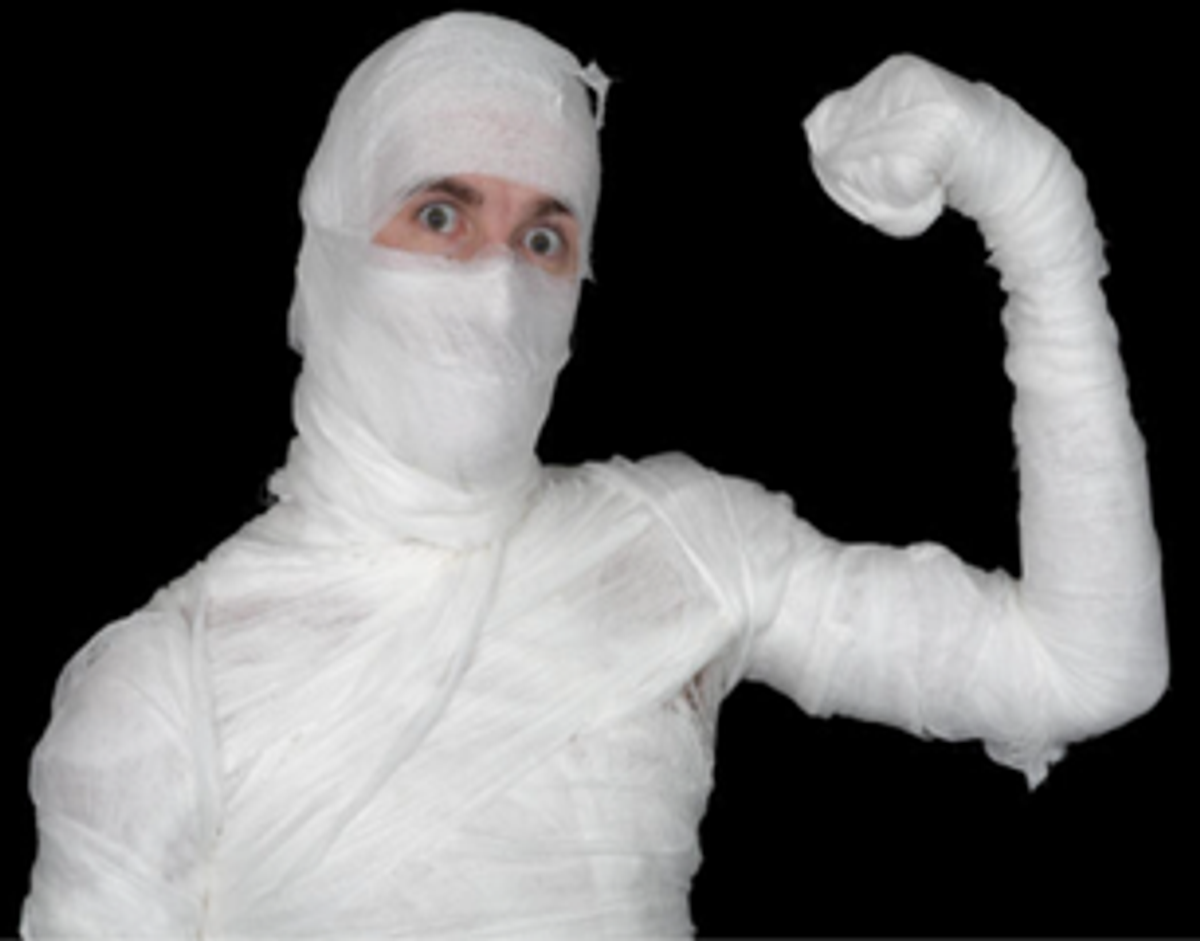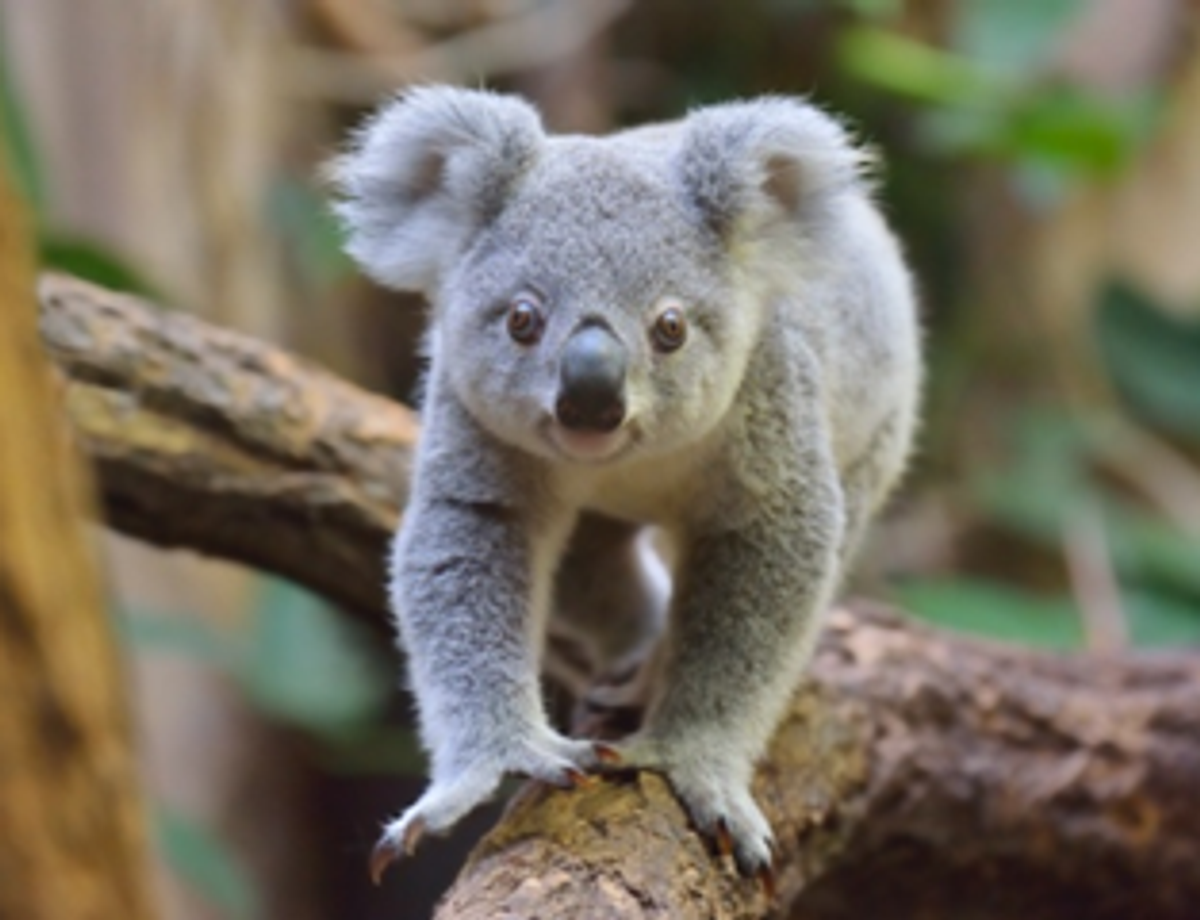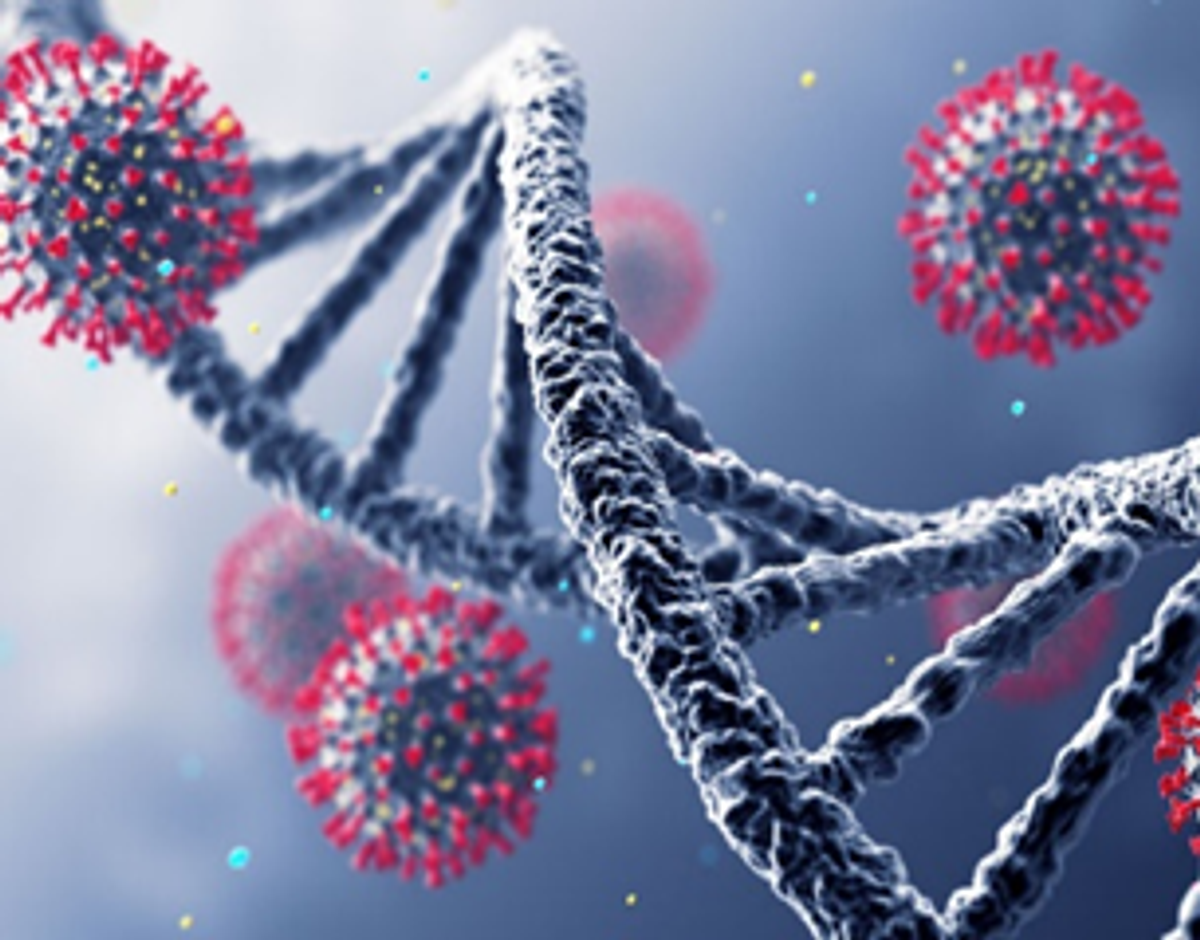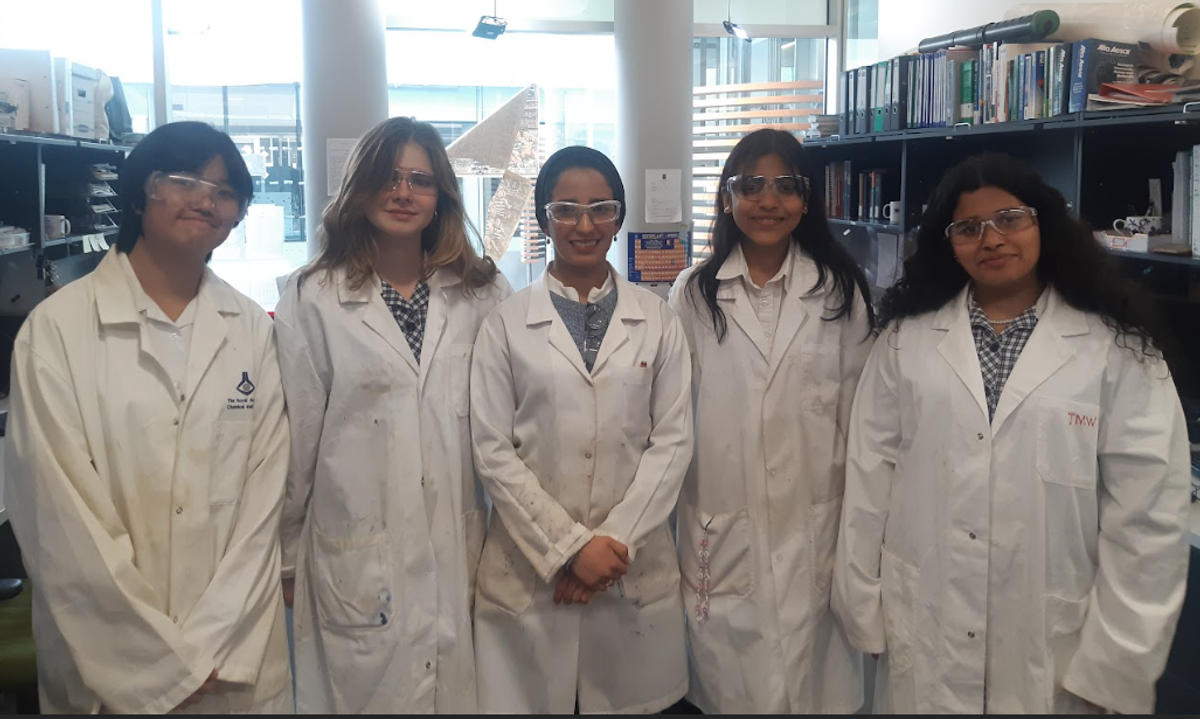STEAM News

STEM Pathways program
In term 3 this year, Ling So of year 10 participated in the GHD STEM Pathways program. This program’s goal is to encourage more engagement in engineering in current students. This is what GHD had to say about the need for this sort of program.
Science, technology, engineering and mathematics (STEM) skills are the foundation on which the Australian workforce, industries and the economy will thrive. The demand for a STEM-skilled workforce to power our industries is escalating and showing no signs of slowing down. We must tackle the significant under-representation of women in the STEM workforce because we cannot afford to under-utilise all of the nation’s available talent.
This is what Ling had to say about her experiences:
During my time at GHD, I was immersed in a place where innovation met purpose, and expertise blended with passion. While collaborating with the professionals and students helped my understanding of the importance of the spirit of teamwork. Guided by my buddy Bec Lin, I discovered the depth of responsibility that comes with this profession. Leaving GHD, I carry not only technical knowledge but also a newfound passion for making a difference. This experience has ignited my determination to pursue a future in engineering. I want to thank GHD for this wonderful opportunity.
With STEM You Can…Bridge the gender diversity gap in cyber
This article was recently published by CSIRO and features two of our students – Nandini Vyas and Cayenne Lim.
September 26th, 2023
The CyberTaipan Young Women’s Career Tour provides passionate young minds with female role models in science, technology, engineering and maths (STEM).
In a world grappling with the escalating threat of cyber-attacks, cyber security has emerged as a dynamic and vital profession in technology. Ransomware, phishing, and hacking incidents have disrupted the digital landscape, emphasising the need for skilled individuals.
According to a recent report by Causticizer, the Australian cyber security market is set to grow to $5.8 billion by 2024 – 8% annually. Acknowledging this growth and the urgency, the Federal Government’s REDSPICE grant has committed a substantial investment to the Australian Signals Directorate (ASD) to increase Australia’s cyber capabilities.
However, it’s a field that often lacks diversity. Women hold only 25% of cybersecurity jobs globally in 2022, up from 20% in 2019 and around 10% in 2013, according to the Women in Cybersecurity Report 2022.
This is despite girls outperforming boys in tech-based subjects at school, as highlighted by the 2020 National Assessment Program ICT Literacy report (NAP), released by the Australian Curriculum, Assessment and Reporting Authority.
Breaking barriers and expanding perspectives
The CyberTaipan Young Women’s Career Tour seeks to fill this gap by providing passionate young minds with female role models in science, technology, engineering and maths (STEM). Sixteen high-school students from six different states and territories embarked on a journey earlier this year to learn, connect and explore the cyber security landscape.
Led by CSIRO and funded by the ASD with support from Services Australia and the Australian National University, the tour provided students with real-world exposure to cyber security jobs and potential employers in the field.
CyberTaipan tour organiser Abby Hodges says it’s vital to show students the variety and opportunities that cyber security can offer. “If these young individuals can see people like themselves then this can help break future stereotypes and diversify the field,” Abby notes.
One of the standout outcomes from the tour was the shift in students’ interests. At the beginning of the tour, a mere 25% displayed a strong inclination towards pursuing cyber security careers. Afterwards, this number increased to 75%.
Evangeline Endacott, a cyber defence analytics researcher at Commonwealth Bank and a speaker at the event, highlights the importance of showcasing less visible STEM career opportunities and empowering students to pursue them.
“Growing up in regional New South Wales, I didn’t have any role models or know anyone working in STEM. A similar experience to the camp changed the trajectory of my career and life,” Evangeline explains. “I wanted to play that critical role for others. I was also excited by the depth of diversity, from cultural backgrounds to geographic locations.”
Fostering student ambitions
The tour included a range of activities, from behind-the-scenes tours of government cyber security facilities at Services Australia to hands-on technical workshops at the ANU-ASD Co-Lab and inspiring talks by accomplished female cyber security professionals from Commonwealth Bank and the ANU School of Cybernetics.
Students, many of whom were initially unsure of their career options left with clear ambitions. For instance, one student said they’d like to become a “cryptologist, defensive hacker or cyber analyst.” Another envisioned a career as a “penetration tester,” even specifying the Australian Space Agency.
When asked about the tour’s most valuable aspect, one student says: “Learning about the career options that you couldn’t find out about otherwise.” Among the group, a sentiment that particularly resonates is, “I like how STEM connects to cyber. There will always be ways to get into cyber, and you [don’t need] a PhD or Masters.”
Inspiring future cyber leaders
The CyberTaipan Young Women’s Career Tour achieved what it set out to do – inspire, educate, and transform. Through engagement and interactions, the tour linked knowledge to application, emphasising the vital role and diversity of STEM education and skills in cyber security.
By understanding the varied careers, real-world insights, and meeting role models, the initiative has sparked curiosity in these young minds. As they return to their schools and communities, they carry a newfound interest in cyber security that could shape the field’s future.
“Exposure and visibility are essential to promote STEM careers, especially amongst women and girls. Demystifying the stigma of what STEM professionals look like is so important,” Evangeline explains. “Women are amazing multi-talented problem solvers. We need more in this space to keep shaping and changing the world.”
FIRST Robotics Competition (FRC) update
Our FRC team is growing, and we have signed up for the 2024 season. We have been very lucky to get a large grant from the FIRST organisation to pay for most of our entry fees and equipment. However, we will be doing lots of fundraising and donation-seeking in the next few months.
We have been busy learning about CAD software, gearboxes and drive motors as well as setting up our new robotics workshop. We are aiming to reverse-engineer a “grabber” that will pick things up. We are starting to get all the parts together, then the building begins.
If you have any expertise or facilities that might help us out, we would love to hear from you! If you work for a company that would like to assist a team of amazing young students achieve engineering glory financially, we would love to hear from you too!
FIRST Lego League
Our Lego League teams, Mindstormers and Byte our Dust, are busy getting ready for the competition on the 18th of November. Their robots are performing really well and the projects are coming along nicely. Have a look at what we have been doing.
What’s the link between ancient mummies, koalas and viral evolution (COVID-19 not TikTok)?
Lunchtime presentation by: Dr Ash Porter (they/them)
PhD from University of Sydney in 2020, Majored in Genetics (B.Sci, UQ), Research Scientist at Doherty Institute
Looking forward to meeting you to chat about how I got involved in studying how the novel coronavirus SARS-CoV-2 was evolving the COVID-19 pandemic. We’ve made some interesting discoveries which are informing us on what SARS-CoV-2/COVID-19 is going to do next. First though, I want to share some interesting things that we’ve learnt about ancient viruses from the nucleic acids extracted from mummies, Viking’s teeth and native Australian wildlife. There is so much to discover through scientific research.
There will be time to ask me anything, so please think about what you’d like to know that would help you. For example: How did I find out about this career? Why viruses? Is it dangerous? How much do Research Scientist get paid? How did I know I was going to like this career choice? The answers may surprise you.
BrainSTEM
On Thursday October 19th, MGC’s BrainSTEM team went to the Bio21 Institute at the University of Melbourne. There they learned about some of the advanced forms of chemistry being used to develop treatments for cancer and a large range of modern diseases, as well as how a real chemist works in their day to day job.

